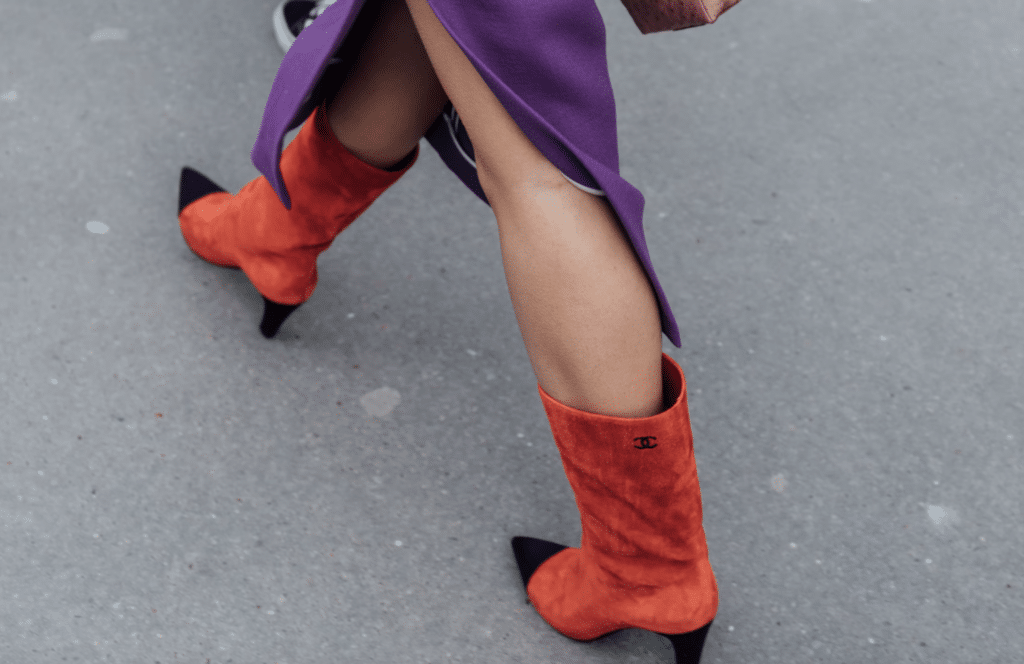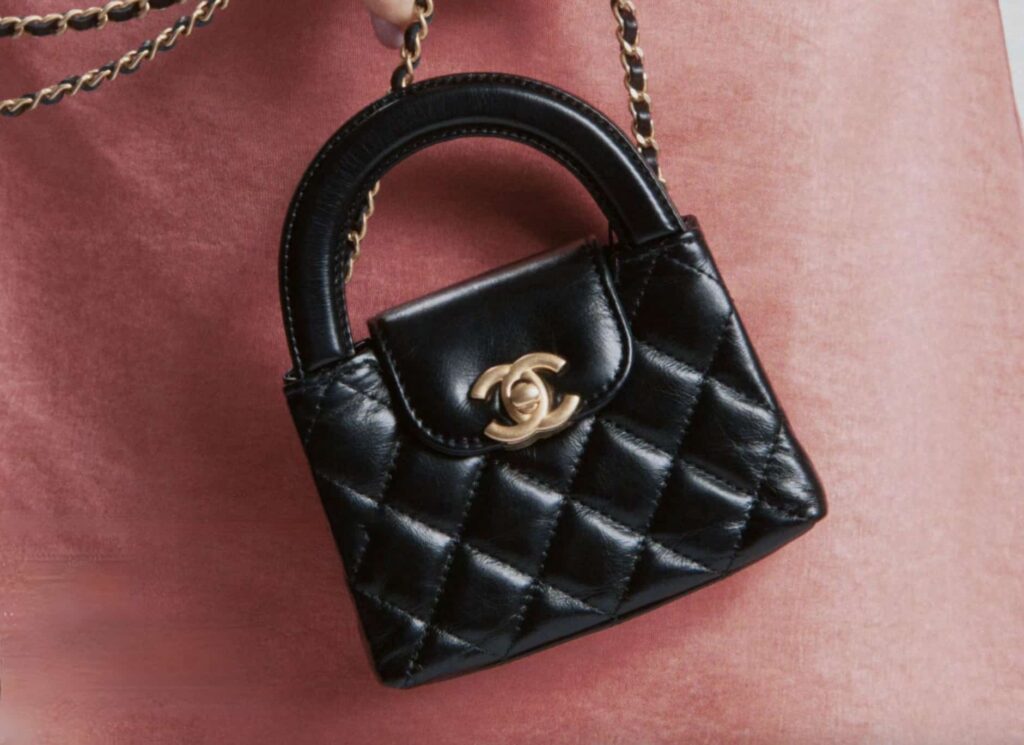With some 6.5 million members across the globe and nearly 400 employees People for the Ethical Treatment of Animals (“PETA”) has come a long way from its earliest days when two animal rights activists uncovered the animal testing being carried out on 17 wild-born macaque monkeys at the Institute for Behavioral Research in the outskirts of the Washington, DC, in the town called Silver Spring, Maryland in the early 1980s. In the process of a 10-year fight for custody of the monkeys, PETA’s founder Ingrid Newkirk and her fellow activist Alex Pacheco gained international renown, and PETA was born.
For much of its nearly 40 year history, PETA – and its crusade against factory farming, fur farming, animal testing, and the use of animals in entertainment – has been synonymous with shocking media campaigns, from its nudity-centric “I’d Rather Go Naked Than Wear Fur” ads to its penchant for flour bombing the likes of Kim Kardashian and Vogue editor-in-chief Anna Wintour, among others.
The fashion industry landed on PETA’s radar approximately 20 years ago. When the animal rights organization began expanding its operations, it “realized the fashion industry was an area that could attract a lot of media attention,” Racked noted in 2017.
With its new target in mind, PETA “started by focusing on fur, which involved a lot of letter-writing in the days before email and protesters trying to land themselves in front of TV cameras, and a few brands and retailers caved to the aggressive organization’s pressure. It’s big break came, however, in early 1994. Just days after PETA “invaded Calvin Klein’s offices on January 25 … spray-painting ‘kills animals’ under the Calvin Klein emblem in the reception area and putting stickers on the walls reading ‘fur hurts,’” as the New York Times revealed at the time, the brand announced that it would cease all use of fur.
PETA was emboldened.
Fast forward more than 25 years, and PETA is still relentless. However, its efforts have evolved. While activists can still be found holding signs and picketing outside off fur-selling companies’ stores, and hopping onto Fashion Week runways mid-fashion show, PETA rather recently adopted a new tactic: small-scale equities acquisitions.
LVMH Moët Hennessy Louis Vuitton’s shares trade on Euronext stock exchange, making them accessible to anyone who wants to shell out $75.44 per share (as of Tuesday evening). In early 2016, a new shareholder entered into the LVMH ownership circle. PETA announced that it had acquired a single share in the Paris-based conglomerate, which holds the title of the largest luxury goods group in the world thanks to its $173.32 market capitalization.
The announcement came less than a year after PETA revealed that it had acquired a single share in Hermès in 2015 for $360, and would be followed up by similar buys of Prada and Canada Goose stock, among about 80 other fashion and on-fashion companies like SeaWorld, McDonald’s and Kraft Foods. Most recently, a representative for PETA says that the group “has taken advantage of the COVID-19 market slump to purchase stocks in nearly two dozen companies, including Ralph Lauren, Urban Outfitters, Guess, and [Michael Kors and Versace’s parent company] Capri Holdings in order to push brands to ban wool, mohair, and cashmere.”
Some of other companies that can count PETA as one of their newest shareholders? Burberry, Uggs’ parent company Deckers Outdoor Corporation, Tapestry, Inc. (the parent company of Coach NY, Kate Spade, and Stuart Weitzman), Aritzia, Target, and Under Armour, among others.
The shares that PETA has amassed in all of these companies – and the ones before them – are far from symbolic. In fact, such an ownership stake grants PETA reps access to companies’ annual shareholder meetings. This “gives PETA a new forum in which to present the research we have done to company executives, their shareholders and the public,” says Ashley Byrne, a campaign specialist for PETA told TFL in the past. In a statement issued on Tuesday, PETA’s Executive Vice President Tracy Reiman said that “PETA is heading to the boardroom to pressure retailers from Ralph Lauren to Urban Outfitters not to sell items that animals suffered and died for.”
And that is precisely what PETA has done in the past. In May 2017, for instance, a representative for PETA confronted Hermès’ chief executive officer Axel Dumas at the company’s annual general meeting. Isabelle Goetz, a French spokeswoman for the non-profit animal rights organization, attended the brand’s annual general meeting and pressed Dumas about whether Hermès planned to stop using exotic skins, including those of ostriches.
Goetz got a response. As Dumas informed shareholders at the meeting that day, “Our farming conditions strictly comply with international regulations because we want to apply the best practices in this field, and I think that Hermès has always been at the forefront of wanting to pay attention to ethics and the treatment of animals.” However, much to PETA’s dismay, Hermès continues to make use of exotic skins.
At a separate meeting across town, LVMH was reportedly far less welcoming. Reps for PETA claim that they were refused entrance to an April 2017 LVMH shareholder meeting after announcing that they would challenge the use of crocodile and ostrich skins by the conglomerate’s fashion brands for their pricey garments and accessories. PETA threatened the corporate giant with legal action after being kept out of the meeting. Meanwhile, LVMH, which owns Louis Vuitton, Dior, Givenchy, Loewe, Fendi, and Marc Jacobs, among others, has refused to budge on its use of animal skins, and in some cases, such as Fendi, animal fur.
PETA has similarly refused to back down. “From demonstrating on the street to speaking up in the boardroom, PETA will push LVMH to stop selling any bag, watchband, or shoe made from a reptile’s skin,” PETA President Ingrid Newkirk has since stated.
In addition to holding shares in LVMH and Hermès, PETA similarly took a small stake in Prada in 2016 in order to pursue its protest over ostrich leather handbags from within the luxury fashion group’s meeting rooms. In a statement issued at the time, the activist group vowed “to ask the company to end the use of ostrich leather in its bags … forever.”
As of last year, Prada announced that it would cease use of fur in its collections beginning in 2020; it has not sworn of using other skins, though. PETA Senior Vice President Dan Mathews said on May 2019 that “for years, PETA has pushed Prada to reject cruelty from the inside – as a shareholder at the company’s annual meetings. This follows over a decade of protests by PETA and our affiliates – including crashing catwalks and organizing street demonstrations – calling on the label to shed its skins. Its decision to ban fur is a triumph for animals and activists.”
“While PETA applauds Prada for joining the ever-growing list of fashion houses that are dropping fur,” Matthews continued, “we now urge the brand to follow in Chanel’s compassionate footsteps by also removing cruelly obtained exotic skins – including crocodile, lizard, and snake skins – from future collections.”
Not to be overlooked is PETA’s largest fashion investment to date: the $4,000 worth of stock – roughly 230 shares – that it purchased at $17.15 a share when Canada Goose listed on the both the New York Stock Exchange and on the Toronto Stock Exchange in March 2017. That number of shares grants PETA the ability to submit shareholder resolutions and speak at the jacket-maker’s annual shareholder meetings.”PETA’s first order of business as part owner of Canada Goose? To pressure the company to stop using fur from cruelly trapped coyotes and down feathers from slaughtered geese,” the company said in a statement shortly after the IPO.
While old-school picketing and flour bombs may still work in some cases, and PETA has obviously seen a need to incorporate new protest tactics into the mix, including good old fashioned luxury retail therapy. However, instead of hitting brands’ brick-and-mortar outposts, PETA does its shopping on the stock market … in the name of animal rights.
*This article was initially published in May 2019, but has been updated to include PETA’s latest COVID-19-related share acquisitions.











